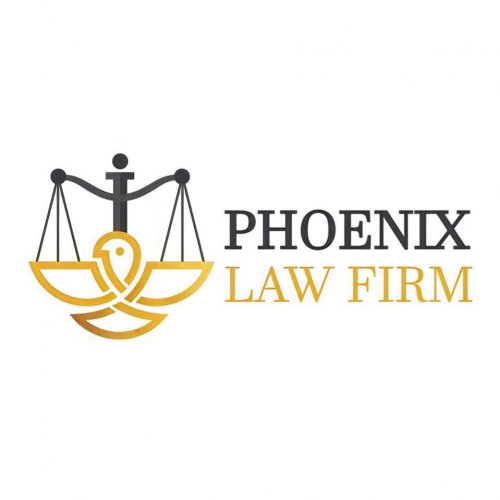Best Criminal Litigation Lawyers in Beirut
Share your needs with us, get contacted by law firms.
Free. Takes 2 min.
List of the best lawyers in Beirut, Lebanon
About Criminal Litigation Law in Beirut, Lebanon
Criminal Litigation Law in Beirut, Lebanon is the legal framework that governs the process and procedures related to criminal cases, from investigation to trial and verdict. It ensures that individuals accused of criminal offenses are given a fair trial and protects the rights of both the accused and the victims.
Why You May Need a Lawyer
There are several situations where you may require legal help in Criminal Litigation in Beirut, Lebanon. These may include:
- Being accused of a crime and needing guidance through the legal process
- Needing assistance with filing or responding to legal documents related to a criminal case
- Seeking advice on potential defenses or plea bargains
- Wanting to understand your rights as a victim of a crime
- Facing a complex legal system and needing someone with expertise to navigate it
Local Laws Overview
In Beirut, Lebanon, Criminal Litigation is governed by the Lebanese Penal Code and the Lebanese Code of Criminal Procedure. Some key aspects of local laws that are particularly relevant to Criminal Litigation include:
- Presumption of innocence - Individuals accused of crimes are presumed innocent until proven guilty.
- Right to legal representation - Every person has the right to legal representation during criminal proceedings.
- Procedures for evidence gathering - The Code of Criminal Procedure outlines the procedures for collecting and presenting evidence in criminal cases.
- Punishments for criminal offenses - The Lebanese Penal Code specifies the range of punishments for different criminal offenses.
- Victim rights - The legal system in Beirut recognizes the rights of victims, including the right to be informed and participate in the criminal proceedings.
Frequently Asked Questions
1. Can I be arrested without having committed a crime?
No, Lebanese law requires the police or authorities to have reasonable grounds to believe you have committed a crime before making an arrest.
2. What should I do if I am arrested?
If you are arrested, it is important to remain calm and cooperate with the authorities. You have the right to remain silent and consult with a lawyer. Request legal representation and avoid making any self-incriminating statements.
3. What are the potential defenses in a criminal case?
Potential defenses in a criminal case may vary depending on the circumstances. Common defenses include lack of intent, alibi, self-defense, and insanity. Consulting with a lawyer is essential to determine the most appropriate defense strategy.
4. What is the process for filing a criminal complaint?
To file a criminal complaint, you need to visit the relevant police station or judicial authority and report the incident. Provide all relevant details and evidence, if available. The authorities will investigate the complaint and decide whether to proceed with criminal charges.
5. What is the role of a prosecutor in Criminal Litigation?
A prosecutor represents the state and is responsible for presenting the evidence against the accused in court. They argue for conviction and the appropriate punishment if the accused is found guilty. However, it is important to note that every individual has the right to a fair trial, and the burden of proof rests with the prosecution.
Additional Resources
For further information and assistance regarding Criminal Litigation in Beirut, Lebanon, you may find the following resources helpful:
- Beirut Bar Association: www.beirutbarassociation.org.lb
- Lebanese Ministry of Justice: www.justice.gov.lb
- Lebanese Penal Code: Available at local legal libraries or legal resource websites.
Next Steps
If you need legal assistance in Criminal Litigation, it is recommended to consult with an experienced lawyer specializing in criminal law. They can provide tailored advice based on your specific situation and guide you through the legal process.
Lawzana helps you find the best lawyers and law firms in Beirut through a curated and pre-screened list of qualified legal professionals. Our platform offers rankings and detailed profiles of attorneys and law firms, allowing you to compare based on practice areas, including Criminal Litigation, experience, and client feedback.
Each profile includes a description of the firm's areas of practice, client reviews, team members and partners, year of establishment, spoken languages, office locations, contact information, social media presence, and any published articles or resources. Most firms on our platform speak English and are experienced in both local and international legal matters.
Get a quote from top-rated law firms in Beirut, Lebanon — quickly, securely, and without unnecessary hassle.
Disclaimer:
The information provided on this page is for general informational purposes only and does not constitute legal advice. While we strive to ensure the accuracy and relevance of the content, legal information may change over time, and interpretations of the law can vary. You should always consult with a qualified legal professional for advice specific to your situation.
We disclaim all liability for actions taken or not taken based on the content of this page. If you believe any information is incorrect or outdated, please contact us, and we will review and update it where appropriate.








